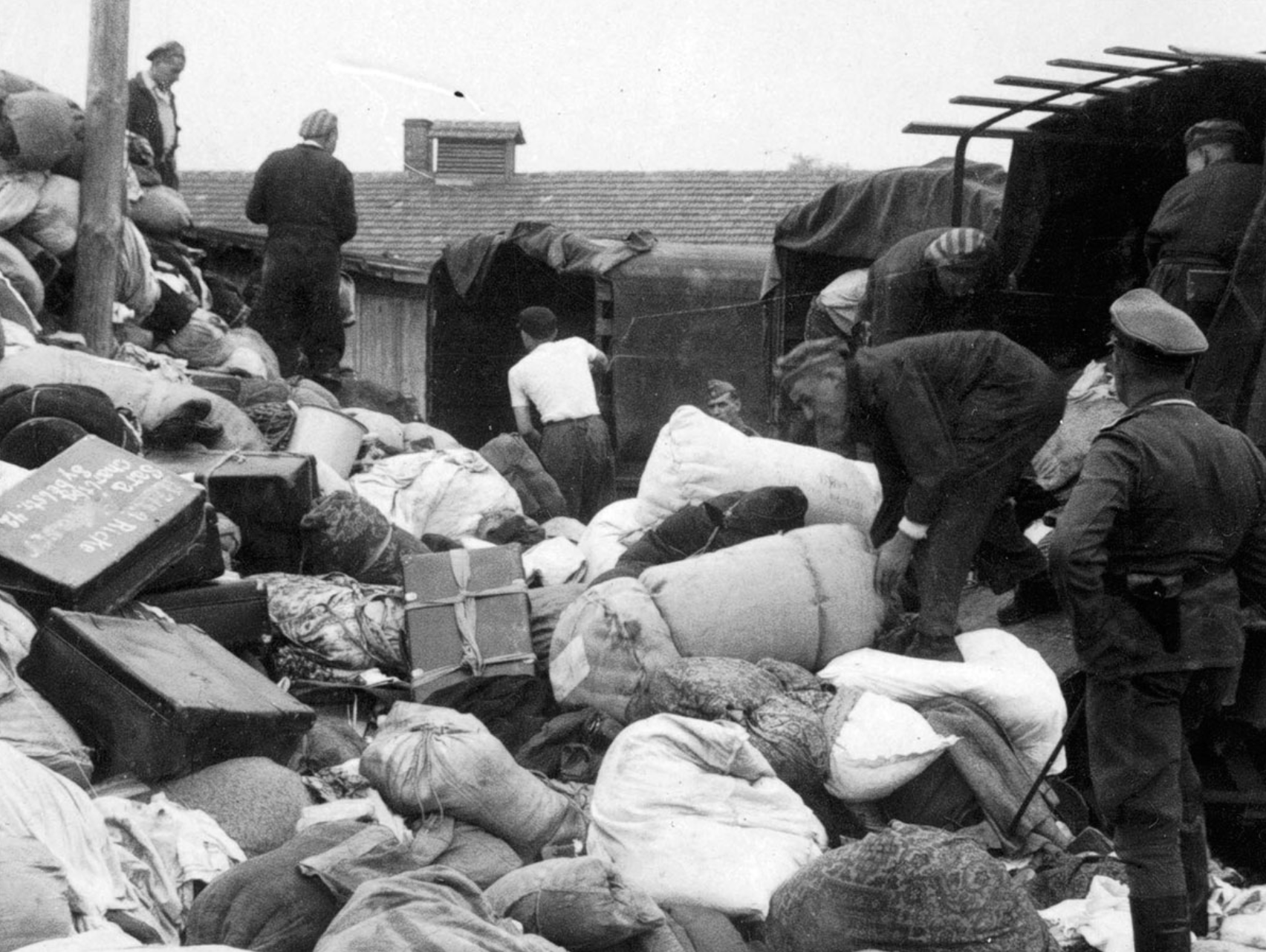From ‘Kanada’ to Canada: Reflections on International Holocaust Remembrance Day
 The ‘Kanada’ section at Auschwitz, where the looted belongings of prisoners were sorted and stored/Yad Vashem
The ‘Kanada’ section at Auschwitz, where the looted belongings of prisoners were sorted and stored/Yad Vashem
By Howard Fremeth
January 23, 2025
On Monday, Ottawa’s Jewish community, along with spiritual leaders, politicians and students, will join Holocaust survivors to gather solemnly at the National Holocaust Monument.
This year’s International Holocaust Remembrance Day on January 27th also marks the 80th anniversary of the liberation of the Auschwitz-Birkenau concentration camp, where one million of the six million Jewish lives taken by the Nazis and their collaborators were extinguished, among the 1.1 million people murdered at the site, including Poles, Roma and other victims.
While this occasion will be commemorated in capitals around the world, it will have unique meaning here in Ottawa because of a strange twist of fate.
It is well known that upon arriving at Auschwitz, Jewish prisoners immediately underwent selection; the brutal, utilitarian process whereby SS guards chose able-bodied men and women to serve in the labour camps. The rest – children, the elderly, the sick, and disabled persons – were sent directly to the gas chambers, which, perversely, were disguised as showers. Their belongings were also confiscated and stored nearby in a warehouse section before being shipped to Germany, where valuables were sold or gifted to prominent Nazi families.
What is less known is that the Jewish prisoners who were responsible for gathering and transporting these belongings had a nickname for the storage facilities: “Kanada.”
To these prisoners, who were stripped of all their material possessions and dignity, Canada was seen as a distant land of plenty — of prosperity and abundance. It was a place they once read about in books or saw in newsreels. It was a country where they imagined anyone, no matter their religion or background, could prosper and thrive.
For the few that saw the liberation of Auschwitz and many other Jews who survived the war, including my own grandmother who escaped to Siberia, the real Canada would eventually become a place to rebuild their lives. Approximately 40,000 Holocaust survivors made their way to communities across the country. Through hard work and determination, they succeeded in all professions and parts of society. They raised families, started businesses, built charities, contributed to their communities, and gave back to the country that had welcomed them.
Sadly, 80 years later, the promise of Canada is now under threat. Never in my lifetime did I imagine that Canada’s Jewish community would experience what we have gone through since the massacres of October 7th in Israel via the immediate, terribly ironic shockwave of antisemitism felt around the world.
We certainly knew that antisemitism existed here in Canada. I recall several uncomfortable experiences that I will never forget. One that sticks out was riding up in my Vancouver apartment’s elevator with a neighbour who offered colourful language about “the cheap Jewish landlord” – not knowing that I’m Jewish (I also later checked, and learned the owner of the building was not even Jewish, which speaks volumes about the nature of this form of hatred).
Although we were aware that anti-Jewish prejudice still existed, in the 21st century it seemed either hidden or isolated to the extremes of our society.
Nothing prepared us for what we have experienced over the past 15 months: Jewish schools shot at on a regular basis, synagogues firebombed, Jewish-owned businesses attacked, protests outside elderly care centres that are home to Holocaust survivors, and Islamic State terrorist plots against Jewish sites that have thankfully been thwarted.
For us, these are not abstract events we read about in our newsfeeds.
It’s the synagogue in Montreal’s west island where my cousin had his bar mitzvah, it’s the elderly residence that I used to volunteer at, it’s my favourite coffee shop when I visit Toronto, and it’s the event on Parliament Hill that I took my daughter to. The danger is all-too real.
But it is not just a concern for Canadian Jews. Surveys show that most Canadians feel less safe and believe more violence may be on the horizon. A Pollara-CBC poll taken last November found that one third of newcomers to Canada felt safer in the countries they left – even war-torn countries such as Ukraine.
The good news is, there is something we, as Canadians, can do about it. We should not wallow in our sorrow; we must be unified in making a strong case to our leaders from all walks of life, but especially politicians. As we prepare for a federal election, we need to advocate for concrete and actionable policy solutions: legislation for safety zones around community institutions; boost funding to protects families and individuals attending schools, synagogues and Jewish community centres; and ban the glorification of Canadian-listed terror groups, to name a few.
In addition to remembering the millions murdered by the Nazis – including Jews and many from other communities – this International Holocaust Remembrance Day should be a moment to reclaim the promise of a country that, 80 years, ago offered so much hope to those who had faced certain death.
What’s at stake does not just matter to Canadian Jews; it matters to all Canadians.
Howard Fremeth holds a PhD in Communications from Carleton University and is Vice President, Communications at the Centre for Israel and Jewish Affairs.
